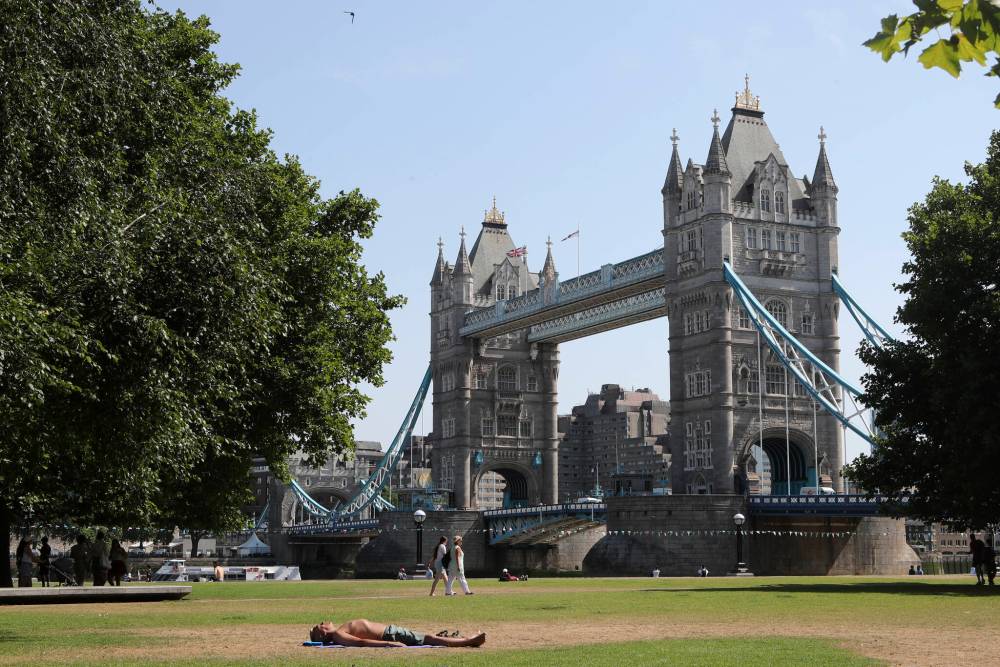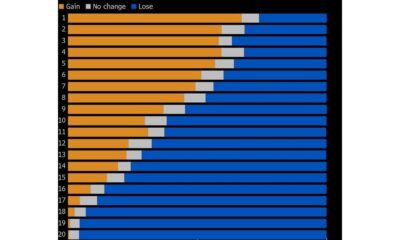Politics
Climate Change Threatens Homes Worldwide, New Data Reveals Risks

The impact of climate change is becoming increasingly evident, with new analyses showing that no area is immune to its effects. A recent report highlights that in the United Kingdom, approximately 48 percent of homes owned by the poorest fifth of households are at risk of overheating as summer temperatures rise. Even in more affluent sectors, 17 percent of the wealthiest households face similar threats from extreme heat.
The report, covered by the Guardian, emphasizes that minority ethnic groups, children, and seniors are particularly vulnerable. The ongoing heat waves in the UK illustrate the serious repercussions of living in excessively hot conditions, which can lead to respiratory issues and mental health problems. Despite being a developed nation, the UK’s construction standards, which have not kept pace with modern climate realities, exacerbate the risk for residents.
Urgent Calls for Action in the UK
Experts are urging the UK government to revise building regulations to better accommodate the challenges posed by climate change. Although recommendations for updated standards are anticipated to be implemented by 2027, these changes will not provide immediate relief for residents living in homes constructed under outdated guidelines. Many individuals now face the difficult decision of whether to endure oppressive heat or relocate to areas with better cooling facilities.
While the concept of climate refugees migrating from developing regions to the Global North is prevalent, the UN Refugee Agency clarifies that this narrative is misleading. A dedicated webpage states that evidence does not support the notion that large numbers of individuals will flee climate change from the Global South to the Global North. Instead, most people displaced by climate-induced disasters tend to relocate within their own countries or to neighboring regions.
In 2022, over 32 million people were internally displaced due to floods, storms, wildfires, and other climate-related disasters. This figure represents a 41 percent increase from 2008. The situation has become palpable in regions like Manitoba, where residents of the northern area are currently being evacuated southward due to wildfires.
The Broader Climate Crisis
The UN also notes that climate change acts as a “threat multiplier,” worsening poverty and job loss, which can drive individuals to seek better living conditions elsewhere. This dynamic reflects the challenges facing the UK as the nation grapples with the dual burden of housing safety and climate-induced migration pressures.
Determining the precise number of people who may be displaced by climate change remains complex, as it largely depends on how effectively humanity addresses the crisis moving forward. What is indisputable, however, is that no region is completely shielded from the damaging consequences of climate change. Therefore, governments around the world share a collective responsibility to mitigate these effects and support those who are forced to abandon their homes.
As the climate crisis unfolds, it is imperative for global leaders to act decisively to prevent more individuals from becoming climate refugees. The need for comprehensive strategies to address both immediate impacts and long-term solutions has never been more critical.
-

 Politics4 weeks ago
Politics4 weeks agoSecwepemc First Nation Seeks Aboriginal Title Over Kamloops Area
-

 World5 months ago
World5 months agoScientists Unearth Ancient Antarctic Ice to Unlock Climate Secrets
-

 Entertainment5 months ago
Entertainment5 months agoTrump and McCormick to Announce $70 Billion Energy Investments
-

 Science5 months ago
Science5 months agoFour Astronauts Return to Earth After International Space Station Mission
-

 Lifestyle5 months ago
Lifestyle5 months agoTransLink Launches Food Truck Program to Boost Revenue in Vancouver
-

 Technology3 months ago
Technology3 months agoApple Notes Enhances Functionality with Markdown Support in macOS 26
-

 Lifestyle3 months ago
Lifestyle3 months agoManitoba’s Burger Champion Shines Again Amid Dining Innovations
-

 Top Stories2 months ago
Top Stories2 months agoUrgent Update: Fatal Crash on Highway 99 Claims Life of Pitt Meadows Man
-

 Politics4 months ago
Politics4 months agoUkrainian Tennis Star Elina Svitolina Faces Death Threats Online
-

 Sports5 months ago
Sports5 months agoSearch Underway for Missing Hunter Amid Hokkaido Bear Emergency
-

 Politics5 months ago
Politics5 months agoCarney Engages First Nations Leaders at Development Law Summit
-

 Technology5 months ago
Technology5 months agoFrosthaven Launches Early Access on July 31, 2025





















